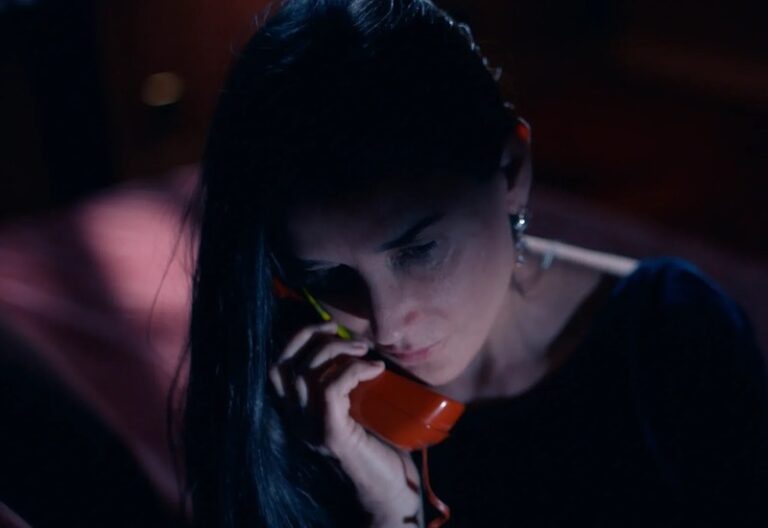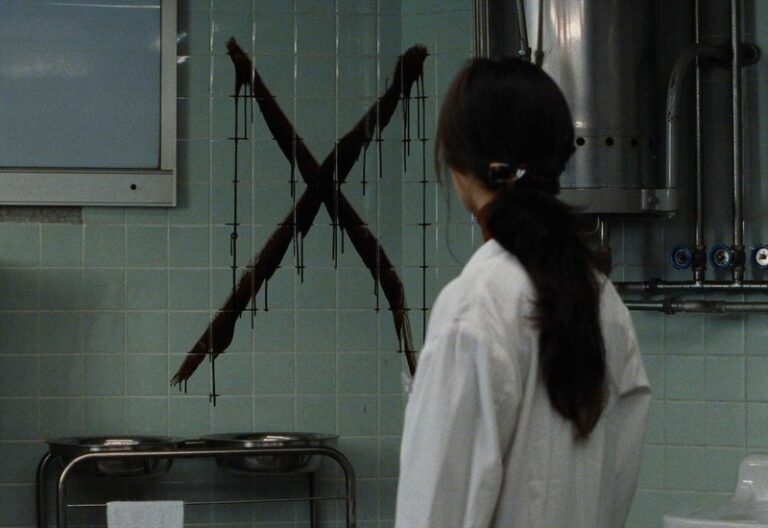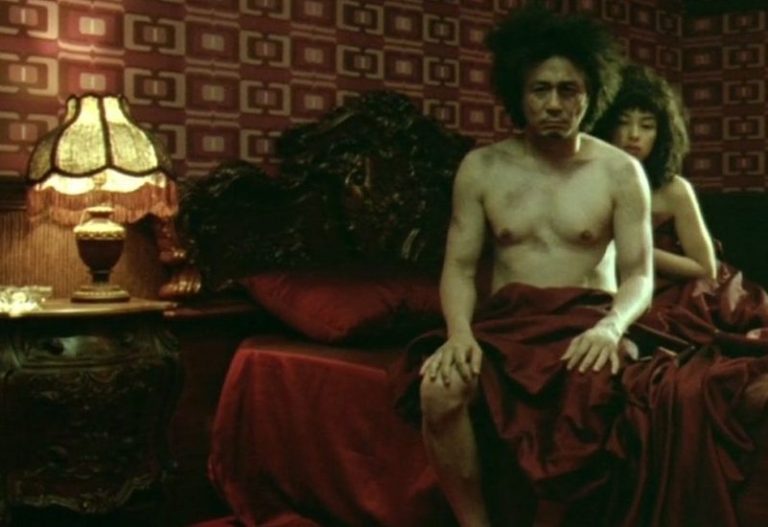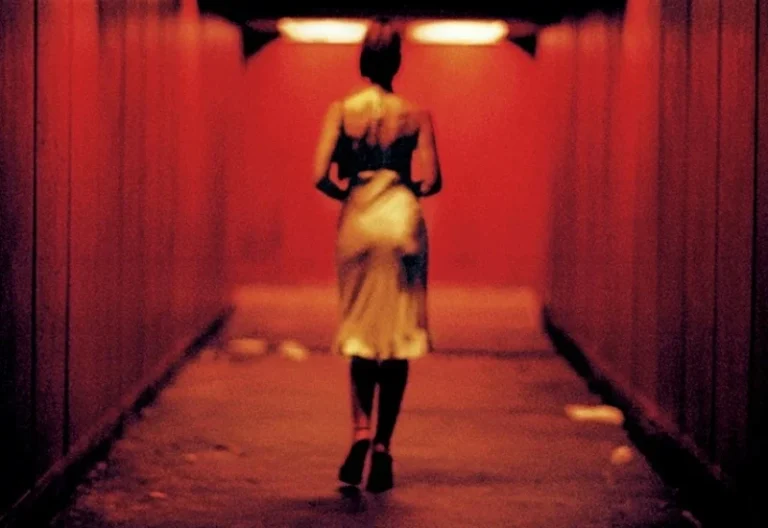pulse review
film by Kiyoshi Kurosawa (2001)
The Tokyo of Kiyoshi Kurosawa’s “Pulse” is the city at its most melancholy. Everything is enveloped in a grey fog. The sun is afraid to show its face. Brutalist architecture looms over everyone. There is little merrymaking; in fact, you’d assume that public laughter is forbidden.
Review by: James Carneiro | Filed Under: Film Reviews
October 06, 2025
It’s a Tokyo I’d never seen on film before and it made me feel extremely sad, but impressed with Kurosawa’s skill at the same time.
There are two storylines, but eventually they intersect. Part of this movie’s genius, I think, is to take the unreality of both stories and mix them together in a way that doesn’t feel forced or unnatural. In fact, their mutal weirdness feels…inveitable? Fated to be? I’m still struggling to find the words.
The way the film handles the ghosts is very interesting. These aren’t midnight movie ghoulies or jumpscare devices. They’re wells of sadness, cursed to walk this Earth, and frankly I feel horrible for them. Their effects on our characters are frightening, but they’re not *trying* to scare them. They’re calling for help, using modems as mediums.
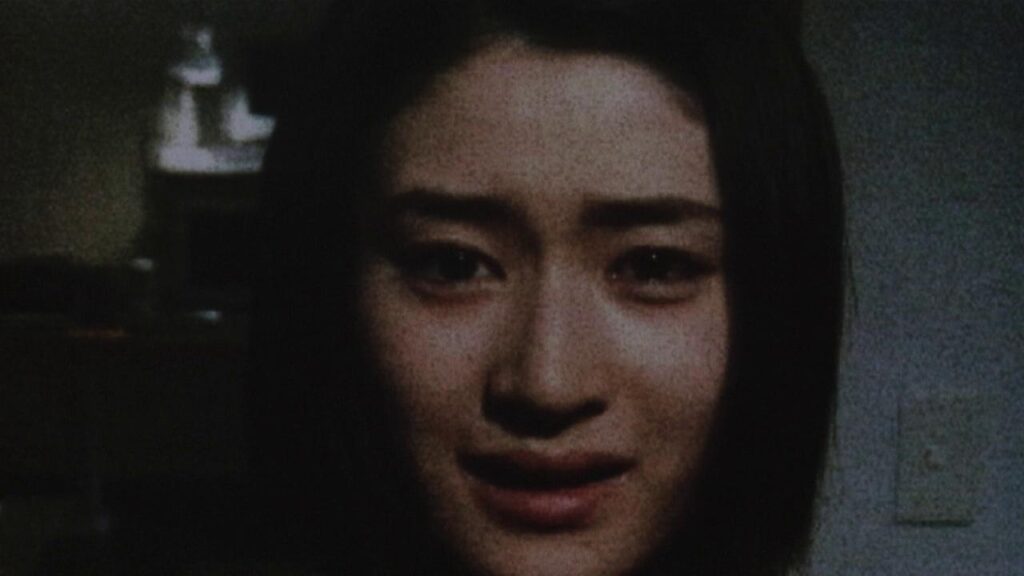
Our unlikely protagonists are Ryosuke, a slacker who’s more interested in his computer than anything or anyone else, and Harue, a computer science professor who has her life together but still feels something is missing in life. Their relationship, carefully cultivated by the script, blossoms into something quite remarkable. Think of the scene in the computer lab where Ryosuke feigns ignorance about computers so he can get the cute professor (Harue) to talk to him. I was able to appreciate it for the quiet, slightly comic power it had.
The most disturbing aspect of “Pulse” begins around the halfway point: people simply disappear. They vanish into the inky blackness of The Other Plane. It starts slowly, but once you notice it, it’s too late and you’re terrified. You’re terrified at the new reality you’re doomed to, and you’re terrified at the dawning realization that you were already so isolated and compartmentalized you barely noticed at first.
The thrust of “Pulse” is this: with our madcap dash towards The End of History, our fetishization of gadgets, our loss of collective identity, and our alienation from anything meaningful or uncomfortable, we have doomed ourselves to walk the Earth in a living death.
Contented, safe, apolitical, and completely hollow on the inside.

Author
Reviewed by James Carneiro. Initially caught the film bug while cruising for used copies of Bergman flicks/bootleg concert footage at Disc Replay. These days, he’ll review quite anything, though he is partial to Italian neorealism, American underground film, and whoever is using cinema as a method of interrogating power structures. You can follow him on Letterboxd and Twitter.
A fading celebrity decides to use a black market drug, a cell-replicating substance that temporarily creates a younger, better version of herself. The Substance was…
When her young son Minato starts to behave strangely, his mother feels that there is something wrong. Discovering that a teacher is responsible, she storms…
In 1943, Rudolf Hoss, commandant of the Auschwitz concentration camp, lives with his wife Hedwig and their five children in an idyllic home next to the camp. Hoss takes…
In the 90s, fear was defined by excessive gore, dark settings, and monsters in masks that chased their often-adolescent victims around their white-picket lawns. American…
The Korean New Wave is a transformative period in South Korean cinema that not only captivated audiences at home but also gained international acclaim. Marked by…
Cinema as an art form, has the unique ability to challenge societal norms, push the boundaries of storytelling and provoke intense emotions. One of the most striking…

